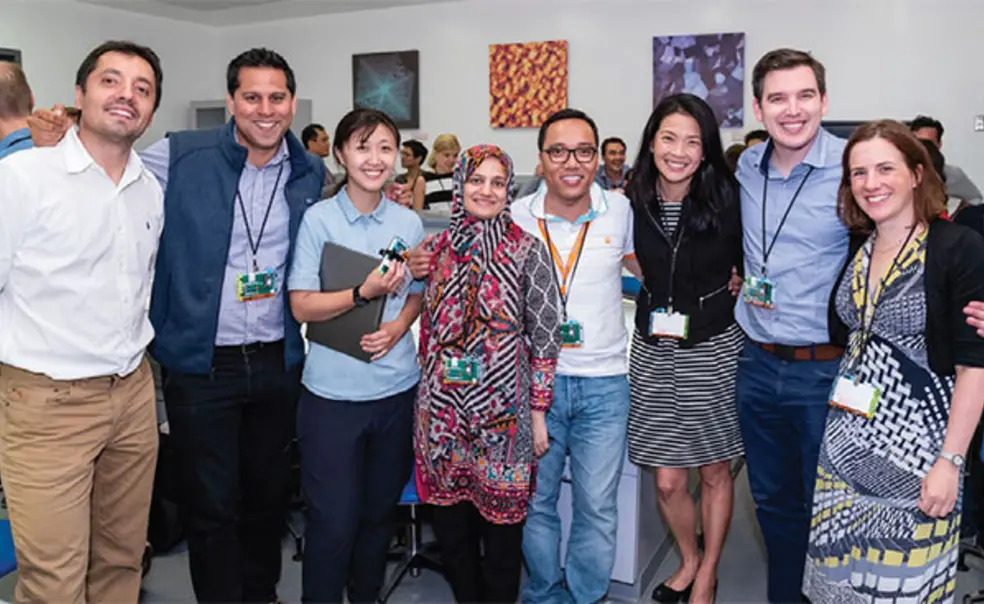Expanding the Impact of Princeton’s Mission
Princeton’s fall term is now well underway, and the campus once again brims with activity. Yet while September undeniably brings fresh energy to Old Nassau, the University also hosts an increasingly robust slate of programming during the summer. The weeks between Commencement and Opening Exercises provide an opportunity to extend the scope of Princeton’s mission beyond traditional boundaries, and I had a chance this year to see several innovative teaching initiatives firsthand. Here are two examples.
In June, I spoke with members of the Warrior Scholars Project, a program that prepares current and former enlisted service members for life on a college campus. These students bring valuable expertise in problem-solving and team-building from their military service. They learn how to translate their skills to a college environment through an intensive academic experience.
This year, Princeton hosted a two-week program for 15 scholars. The first week focused on the liberal arts, exploring concepts such as democracy, liberty, and equality with Princeton professors including Miguel Centeno, the Musgrave Professor of Sociology and professor of sociology and international affairs in the Woodrow Wilson School for Public and International Affairs. The second week emphasized Science, Technology, Engineering, and Math (STEM) education, exposing students to worldclass research facilities through visits to the Princeton Plasma Physics Laboratory and the Princeton Neuroscience Institute.
When I sat down with a group of students at their end-ofprogram dinner, I was impressed by their talent and by how much they felt they had benefited from their time in Princeton classrooms. They were mesmerized by the laboratory of David Tank, the Henry L. Hillman Professor in Molecular Biology and co-director of the Princeton Neuroscience Institute, and they talked with great enthusiasm about how the program built their confidence, leaving them more prepared to thrive in college.
Lieutenant Colonel Kevin McKiernan, who served for four years as director of Princeton’s Army Officer Education Program, was a driving force behind the decision to host the program at Princeton. Thanks to the leadership of Lt. Col. McKiernan, Director of Transfer, Veteran, and Non-Traditional Student Programs Keith Shaw, and many others on campus, our commitment to the Warrior Scholars Project is distinctive among our peer institutions. We are one of only two schools that fully fund the program.
This level of support reflects a broader institutional commitment to military veterans. Five veterans joined our undergraduate student body in fall 2017, and our newly reestablished transfer program brought six more veterans to campus this fall. These students join a robust cohort of 65 total participants in Army, Naval, or Air Force ROTC, a number that has grown from 28 when I took office in 2013.
In July, I spoke to participants in “Leadership in Energy Innovation and Environmental Consideration,” a four-day education module hosted by the Andlinger Center for Energy and the Environment. The course was designed for the Young Global Leaders, a group of mid-career professionals selected by the World Economic Forum based on records of transformative leadership. The cohort attending this inaugural program at Princeton hailed from 22 countries and included 30 executives, entrepreneurs, public officials, and scholars with demonstrated interest in energy and the environment.
Professor Lynn Loo *01, the Theodora D. ’78 & William H. Walton III ’74 Professor in Engineering and director of the Andlinger Center for Energy and the Environment, was the pioneering voice behind this program. Loo was named a Young Global Leader in 2012. Her path-breaking scholarship studies the development of materials used to construct plastic solar cells and circuits.
As director of the Andlinger Center, Loo has fostered a vibrant program of research and teaching in the areas of sustainable energy technology, energy efficiency, and environmental protection. And she has sought to translate the insights of basic research into practical solutions by engaging and educating stakeholders outside of the academic community.
The Young Global Leaders education module exemplifies this type of outreach. Professor Loo and module co-director Professor Elke Weber, the Gerhard R. Andlinger Professor in Energy and the Environment and associate director for education at the Andlinger Center, designed a course of study that introduced participants to sustainable energy technologies and explored the psychological dimensions of decision-making. This curriculum, made possible by generous funding support from Howard Cox ’64, will enable the Young Global Leaders to strengthen sustainability initiatives within their respective organizations and communities.
Interactions with professionals across industries help Princeton researchers to understand the problems that could benefit from academic attention and thereby drive the range of research questions we address. In turn, these partnerships help practitioners to learn about the research being conducted on college campuses and make decisions that are informed by cutting-edge scholarship.
Both the Warrior Scholars Project and the Young Global Leaders education module demonstrate the value of external partnerships. Even short stays allow visitors to forge connections with Princeton staff and faculty. By welcoming budding scholars and seasoned professionals alike into the Princeton family, we are increasing the impact of the University’s teaching and research mission.












No responses yet